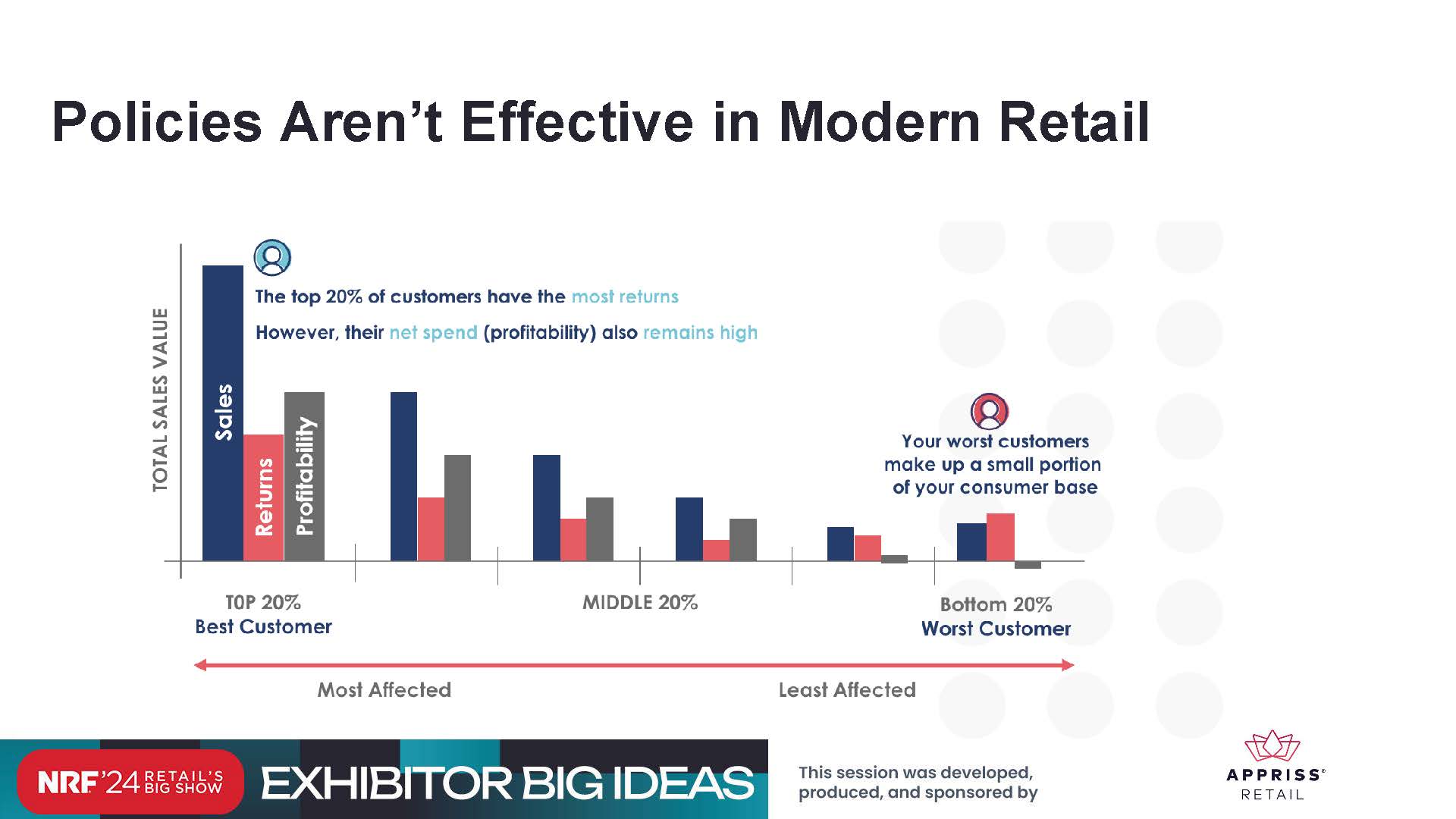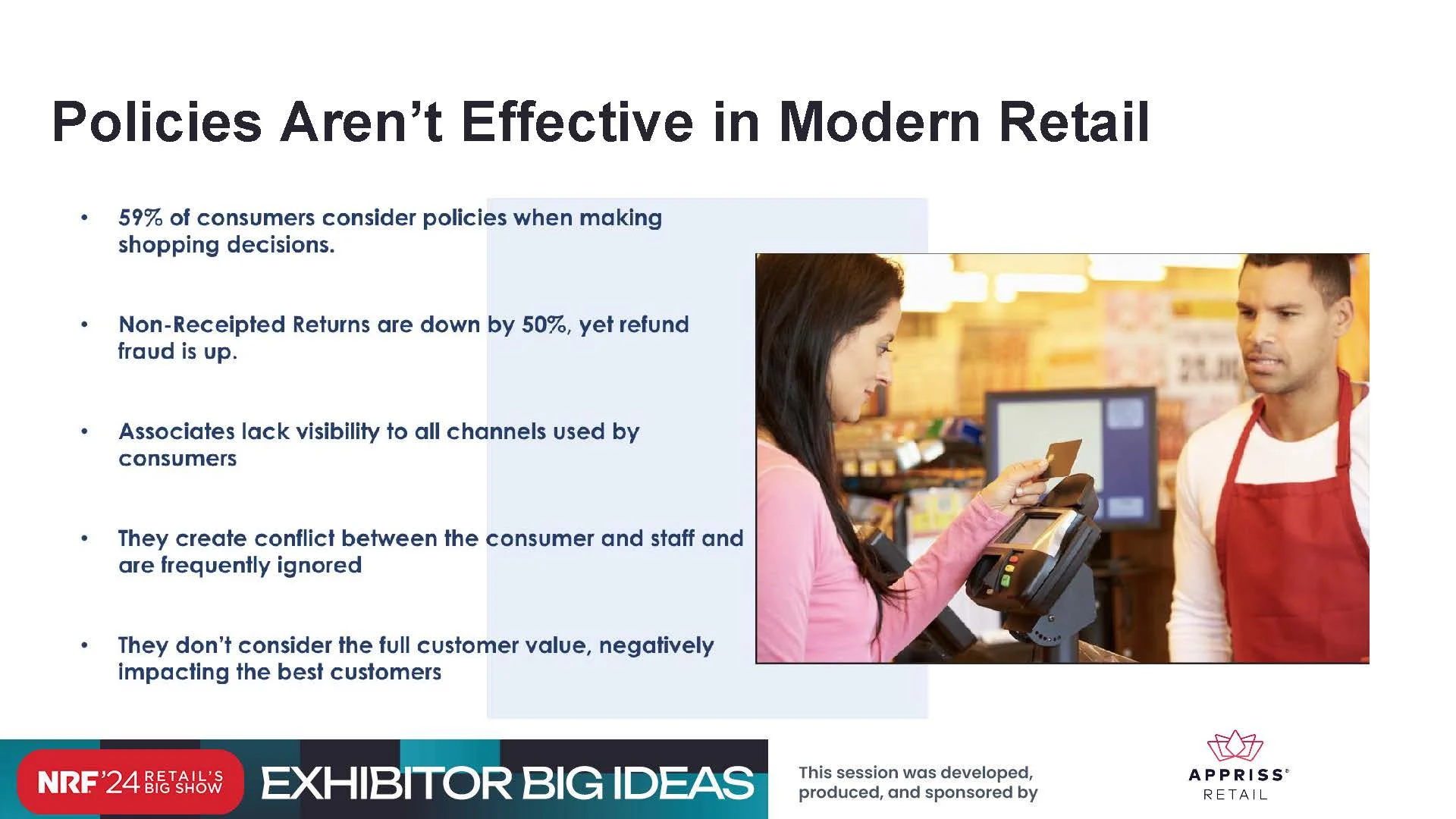Fraud and abuse in retail returns continue to rise at a concerning pace, according to the annual 2023 Consumer Returns in the Retail Industry Report from NRF and Appriss Retail. Case in point:
- Fraud and abuse accounted for nearly 14% of total retail returns in 2023, totaling a loss of $101 billion.
- Year over year, fraud and abuse increased by 20%.
Retailers must boost efforts in the new year to mitigate retail return fraud and abuse across all channels including online claims & appeasements. This begins by developing a strong understanding of consumer behavior when it comes to retail returns, claims, and appeasements.
Let’s discuss key findings from the new report, including how retailers are being impacted by consumer returns and how they can mitigate losses.
Understanding the impact of consumer returns on retail
It’s not all bad news for retailers; consumers are making fewer returns, which means better profit margins. The 2023 Consumer Returns in the Retail Industry Report finds:
- Total retail returns declined in 2023 by nearly 2% year over year, going from 16.4% in 2022 to 14.5%.
- Overall returns for the year amounted to $743 billion of the $5.13 trillion in U.S. retail industry sales.
However, there are growing differences in how consumers are returning items in-store and online that retail teams must continue to monitor — and it’s impacting profits.
Retailers can better understand consumer return behavior by leveraging AI Return Authorization as a component of their return strategies. For example, AI can help retailers anticipate retail return behaviors from repeat consumers and devise customized approaches to save-the-sale or mitigate potential fraud and abuse.
Keeping pace with trends in retail consumer return behavior
The recent rise in online shopping is driving more retail returns and causing retailers to rethink how they approach retail returns online and in-store, as buy online return in-store (BORIS) continues to shake up the returns process. Per the report:
- The rate of returns online is expected to hit 17.6% in 2023, or $247 billion worth of merchandise purchased online that got returned.
- Online sales are expected to increase by 10% in 2023, achieving a total of $1.4 trillion in total online sales.
- Store traffic increased by as much as 5% in the last year, yet in-store returns are being impacted by up to 30% by BORIS activity.
- Including BORIS, the rate of returns is expected to reach 13.3% in 2023, or $495 billion.
Unfortunately, with the rise in online sales comes a rise in the claims and appeasements category. When a shopper files a claim, they are informing the retailer that the product was not received, arrived damaged, or had a different type of defect. As a result, the retailer may provide a refund or credit, and often many retailers are seeing bad actors take advantage of the policy by abusing it and building up significant amounts in claims credits.
The growing awareness of fraudulent online activity has retailers adjusting how they monitor in-store and online returns.
Companies should implement more effective strategies by combining the two channels. For example, the report finds nearly half of the retailers surveyed have separate departments for in-store and online returns. A more streamlined approach can better track questionable patterns and find fraudsters who might be crossing channels for purchases, returns, and claims.
Reimagining the retail return experience
Findings from the latest report show retailers are exploring options to mitigate losses related to return fraud and abuse. They are testing in-store policy changes and limiting the flexibility of online returns. Yet, as they undertake new tactics, fraud and abuse grew 20%, bringing the effectiveness of one-dimensional policies and system controls into question. Furthermore, they must closely monitor consumer reactions. The new standard for customer service is frictionless retail, and any impedance found inside rigid return policies will impact that customer service goal.
Retailers need to enact seamless return processes that enhance consumer satisfaction while cutting down on fraud and abuse. Technology, like Appriss Return Authorization applies AI-based modeling during a consumer’s return transaction, creating a tailored retail return experience for each customer. This allows retailers to automatically give their best customers the experience they expect and deserve while protecting against fraudulent or abusive consumers.
As companies look to reimagine the retail return experience and improve on results from the latest report, technology like AI can help streamline the return process all the while reducing risk.
Contact Appriss Retail for a discovery call and download the full report for insights on the state of consumer returns.







